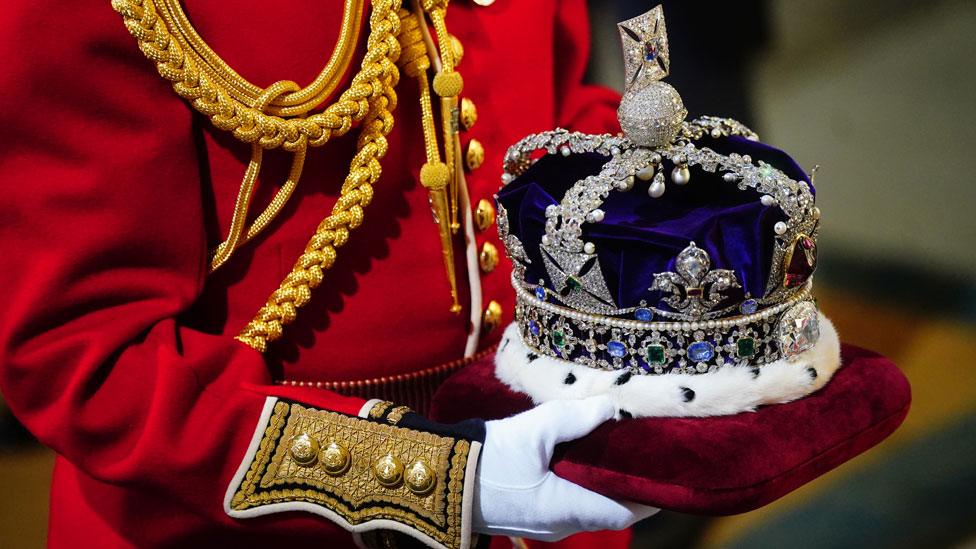Queen's Speech 2015: 'Metro mayors' able to replace PCCs
- Published
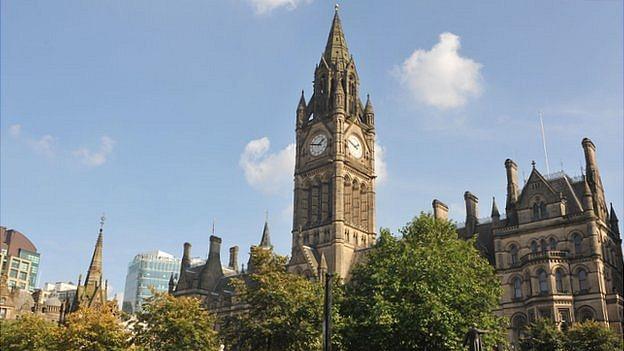
Manchester will be the blueprint for other large cities, according to Chancellor George Osborne
Directly-elected "metro mayors" will be able to undertake the functions of Police and Crime Commissioners (PCCs) in England, under plans included in the Queen's Speech.
PCCs were introduced under the former government to replace the 41 police authorities in England and Wales.
But the new government wants to give their powers to mayors, as part of wider plans for devolution to cities.
The mayors will also have the option to be responsible for local bus services.
However, most areas in England are not expected to have mayors, meaning the majority of PCCs will remain accountable for their police forces.
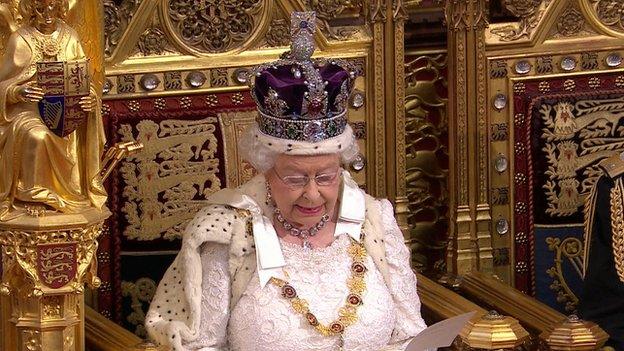
The Queen outlined the proposed legislation of the new government
In her speech, written by the government, the Queen said the Cities and Local Government Devolution Bill would "provide for the devolution of powers to cities with elected metro mayors, helping to build a Northern Powerhouse".
Chancellor George Osborne had previously outlined the plan to devolve powers to cities and create a Northern Powerhouse.
In his first post-election speech, he said Greater Manchester would become a blueprint for other large cities.
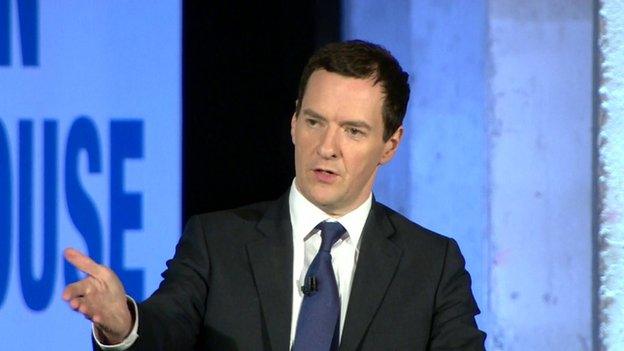
George Osborne had previously outlined plans to devolve powers to cities
Councils in each area will be able to work together as a "combined authority", run by a mayor who is directly-elected by voters, rather than being selected by other politicians.
The cities that opt to do this will be given greater powers over housing, transport, planning and policing.
Greater Manchester will be run by an elected mayor from 2017, with an interim mayor taking on the role in the meantime.
One of the people to put their name forward to be interim mayor is Tony Lloyd, who is already the area's PCC. The other contender is Lord Peter Smith.

Analysis: Arif Ansari, Political Editor, BBC North West
The legislation outlined in the Queen's Speech is a clear indication the government wants to see the Greater Manchester model adopted more widely.
On Friday the ten councils of the Greater Manchester city region will select the first interim mayor. But it will be another two years before there's a vote for the much more powerful directly-elected mayor.
The Queen's Speech confirms this will lead to enhanced powers over transport, skills and housing. The role of police commissioner will also be rolled into the new mayor's portfolio.
George Osborne has driven this "Northern Powerhouse" strategy. He believes devolving political and economic power to the great Northern cities will result in a stronger regional economy.
But the plan is predicated on other city regions following suit. A lot of local government leaders remain sceptical about creating metro mayors. But the Chancellor's offer should soon be unambiguously enshrined in legislation.

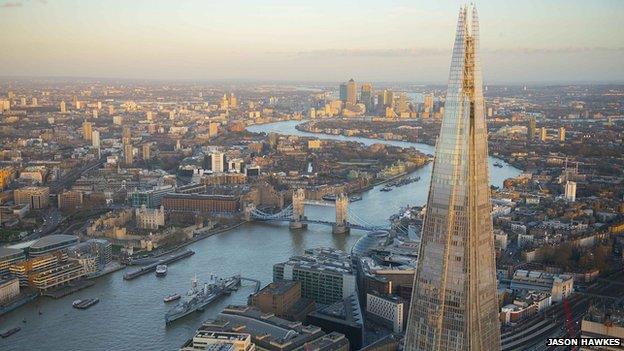
Ken Livingstone became London's first directly-elected mayor in May 2000
Under the Buses Bill, combined authority areas with directly-elected mayors will be given the option to be responsible for local bus services, in the same way as London Mayor Boris Johnson.
The government said this would allow cities to "promote an integrated transport system, supporting the growth and development of their areas" with passengers and service at its heart.
The Queen's Speech also outlined the government's intention to press ahead with legislation that will eventually enable work to start on the £50 billion HS2 high-speed rail scheme.
A second HS2 phase, taking the line north of Birmingham to Manchester and Leeds is also planned, with a finishing date of around 2032/33.
However, separate legislation is needed for this phase and as yet, the exact route has not been determined.
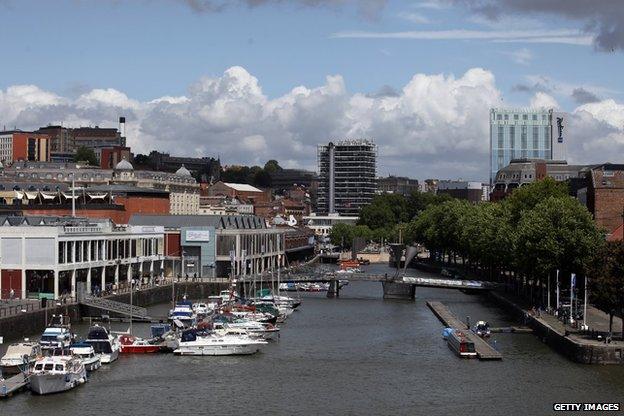
Bristol already has a directly-elected mayor, who would have greater powers under the proposals
The plan for greater devolution of powers to cities has already been welcomed by George Ferguson, the directly-elected mayor of Bristol.
He would have greater powers under the proposals.
"It is time for us to modernise and move away from being one of the most centralised countries in Europe," he said.
"As Britain's main drivers of growth, our cities are severely hampered by having too few financial and legal freedoms and receive far too little of the benefit of their actions."
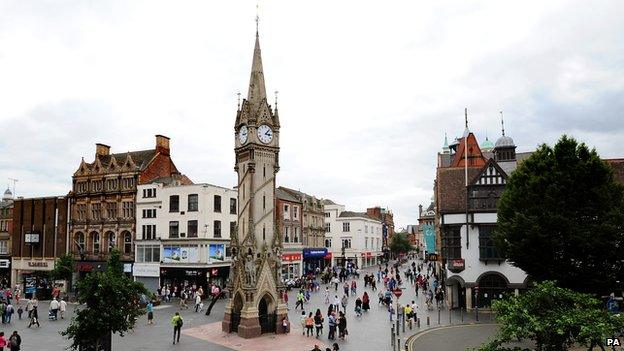
Sir Peter Soulsby took office as the first directly-elected mayor of Leicester in May 2011
Sir Peter Soulsby, the city of Leicester's elected mayor, said it was important for rural areas not to be overlooked.
"These proposals make sense in metropolitan areas, but it's important that differences in local political geography are recognised," he said.
"We already have a directly-elected mayor in Leicester, with a clear mandate - but what's important is that we don't get left out, just because the area around us is more rural than it is in Manchester."
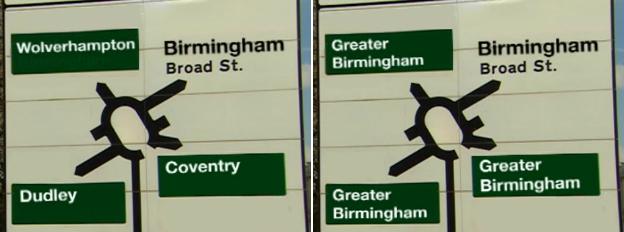
"Greater Birmingham" could stretch as far as Coventry and Wolverhampton
Robert Alden, leader of the Conservative group in Birmingham, said the devolution plans had cross-party support there.
"Birmingham City Council is so much bigger than the surrounding authorities and there is often a fear they will be amalgamated," he said.
"But I think we need the leaders of the bigger councils to be grown up and work together with the district and shire councils, who are absolutely needed to be part of this as well."
He said there were a number of options for the areas West Midlands devolution could cover, which may or may not include Birmingham, Wolverhampton, Coventry and their surrounding areas.
- Published27 May 2015
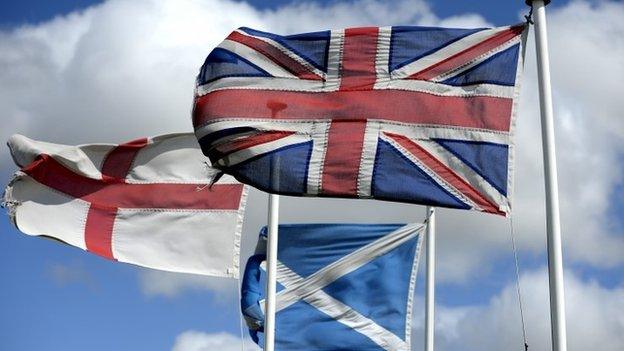
- Published27 May 2015
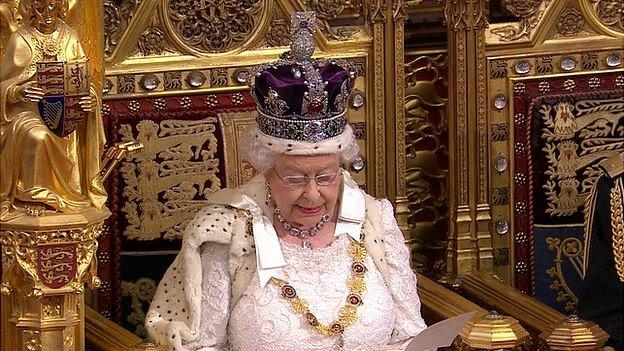
- Published27 May 2015
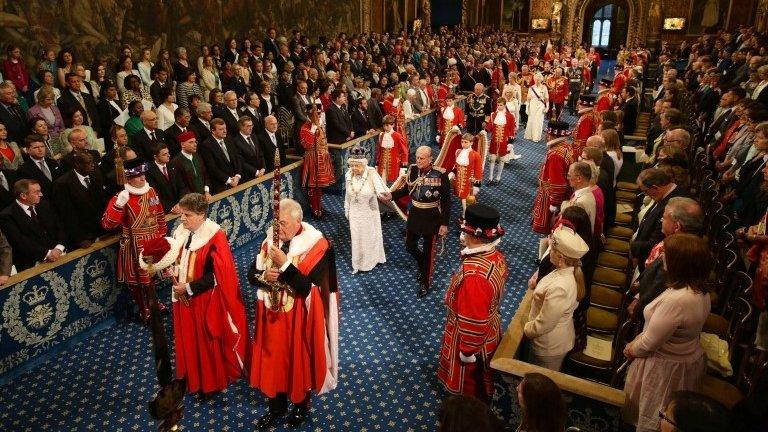
- Published27 May 2015
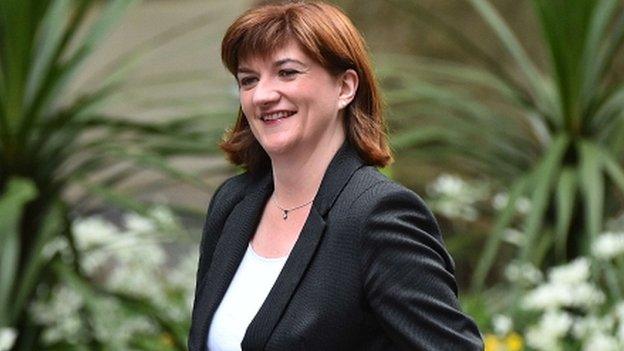
- Published27 May 2015
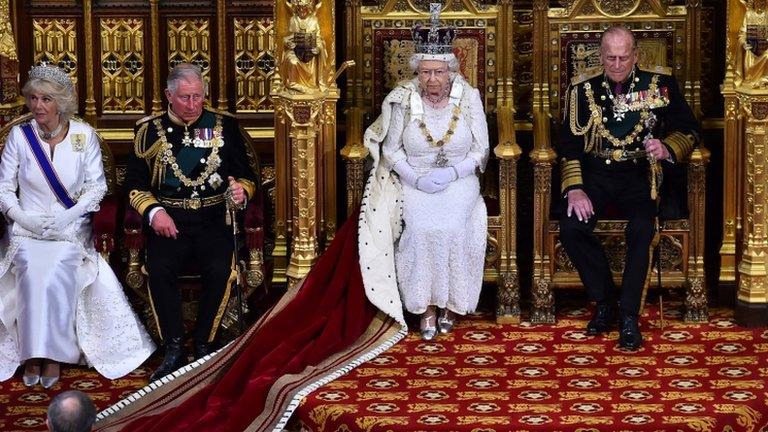
- Published26 May 2015
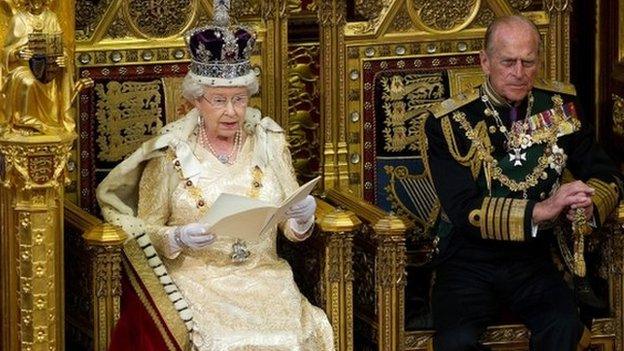
- Published26 May 2015
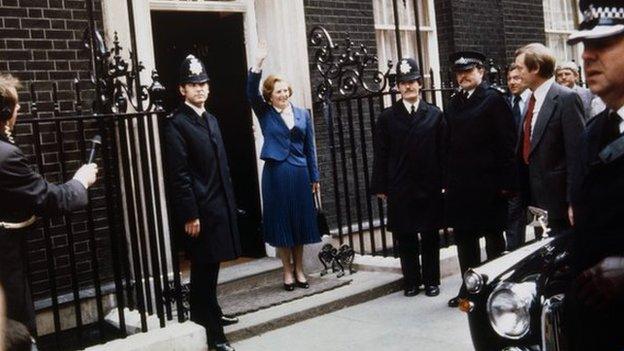
- Published17 July 2024
